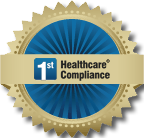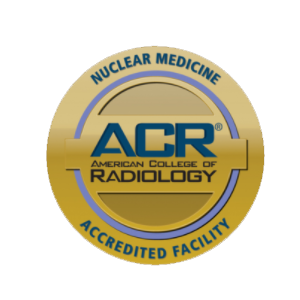Good Health. Great Life. Get Screened.
A Colonoscopy is the beginning, not the end.
COLONOSCOPY - To schedule your colonoscopy online, please Click Here
Our doctors have cared for thousands of patients coming in for their colonoscopy. Whether this is your first time or not, you may have questions. This page contains the most common questions patients ask and provides answers to help educate you as you prepare for your procedure.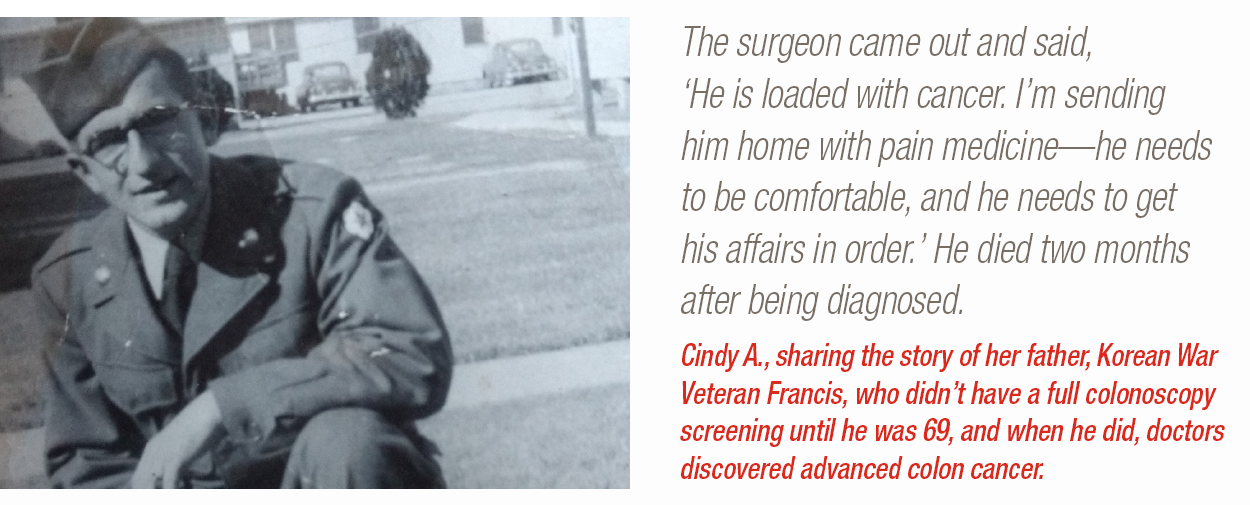
What exactly is a colonoscopy?
A colonoscopy is an outpatient procedure in which the inside of the large intestine (the colon and rectum) is examined. Your doctor will insert a thin, lighted tube into your rectum. A tiny camera on the end of the tube allows the doctor to inspect the inside of your colon for abnormalities including colorectal polyps, which may or may not be cancerous.
How long does
the procedure take?
A typical colonoscopy takes between 30 and 60 minutes.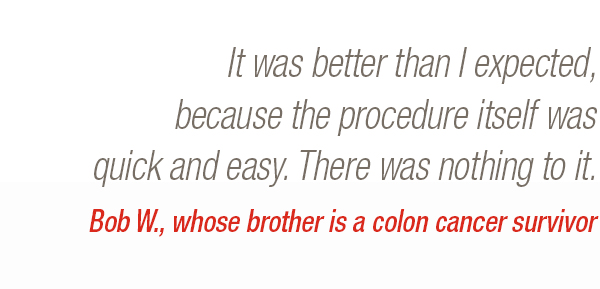
Does it hurt?
No. You will be sedated during the procedure, so there will be no pain. You may experience some minor discomfort following your coloscopy in the form of bloating and gas pains. This is because air is introduced into your colon during the procedure, and until you expel that extra air, you may feel some minor abdominal discomfort.
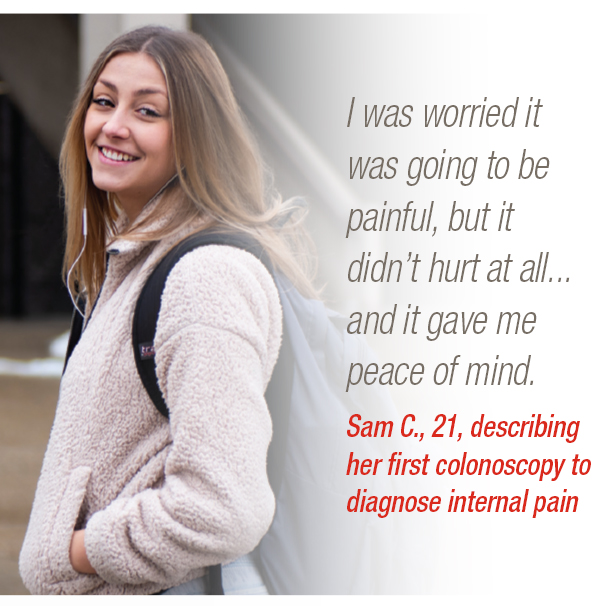
Why do I need to drink the prep the day before?
In order to have a successful colonoscopy, you MUST complete the bowel prep as directed by your physician. In order for the camera to see everything, your colon must be empty. If you arrive for your appointment but did not follow the complete instructions, your procedure may have to be rescheduled.
When will I know the results of my colonoscopy?
Your doctor may advise you immediately following your procedure if there were any polyps discovered and/or removed. If a biopsy is taken or a small polyp is removed, it can take three weeks to get the results back from the lab.
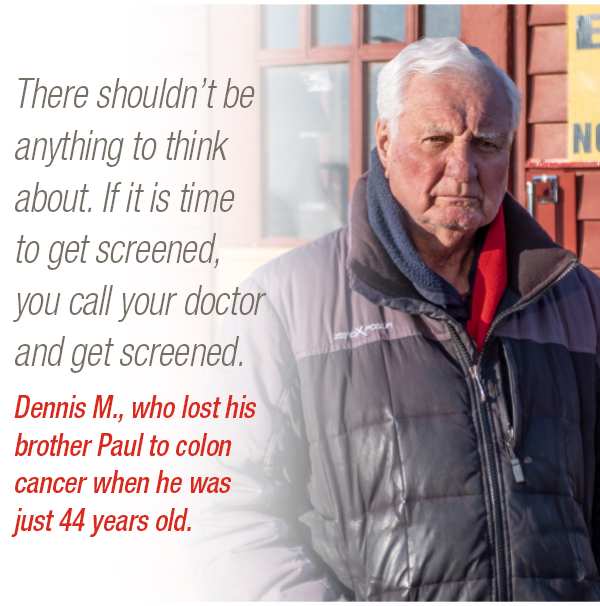
If my doctor finds polyps,
what are my options?
The discovery of polyps during your colonoscopy does not mean you have cancer. Most polyps are not cancerous. Others may be precancerous. Your doctor may remove small polyps during the coloscopy. These will be sent to a lab to be tested. If large polyps are discovered, you may be advised to have them surgically removed.
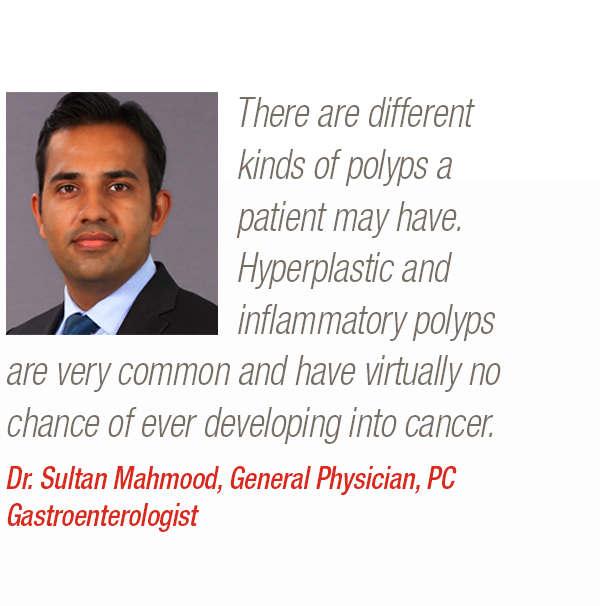
Once I have the colonoscopy, do I have to be screened again?
According to the CDC people should begin screening for colorectal cancer soon after turning 50, then continue getting screened at regular intervals. However, you may need to be tested earlier than 50, or more often than other people, if—
- You or a close relative have had colorectal polyps or colorectal cancer.
- You have an inflammatory bowel disease such as Crohn’s disease or ulcerative colitis.
- You have a genetic syndrome such as familial adenomatous polyposis (FAP)external icon or hereditary non-polyposis colorectal cancer (Lynch syndrome).
If you think you are at increased risk for colorectal cancer, speak with your doctor about—
- When to begin screening.
- Which test is right for you.
- How often to get tested.
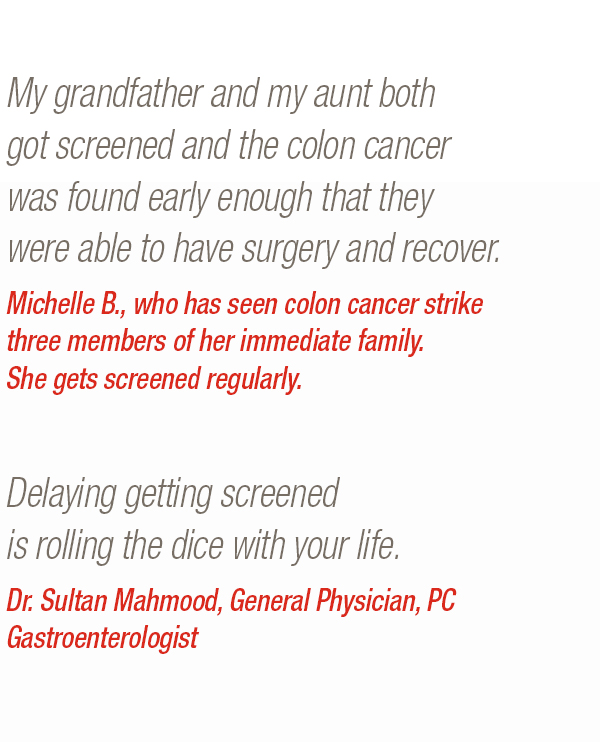

 APPLY ONLINE TODAY!
APPLY ONLINE TODAY!

